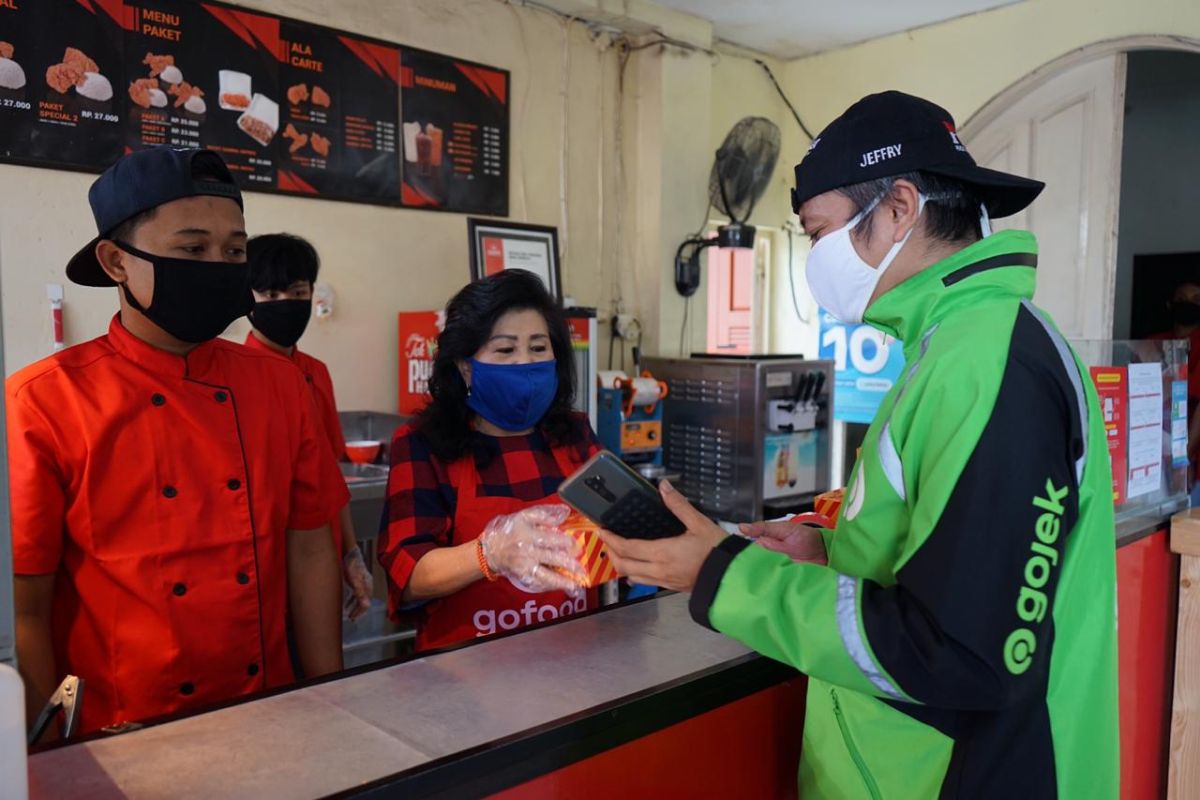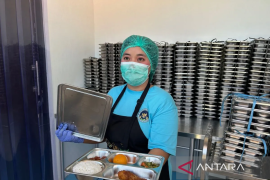The number of new entrepreneurs also increased, (with) the proportion of new GoFood partners without prior business experience nearly doubling to 43 percentJakarta (ANTARA) - Twenty-four percent of GoFood's new partners are private workers who opted to join the food delivery platform during the COVID-19 pandemic, according to research conducted by the University of Indonesia.
“(Of the) GoFood's partners, 70 percent chose to join (the food delivery platform) during the pandemic because they wanted to partner (with the company), (and) a quarter of them were private workers," said Alfindra Primaldhi, a researcher at the Demographic Institute, Faculty of Economics and Business (LD FEB), University of Indonesia, during an online discussion in Jakarta on Monday. Private workers made the highest percentage of workers in the category of professionals who opted to become GoFood partners during the pandemic to find alternative sources of income by offering digital culinary services as Micro, Small and Medium Enterprises (MSMEs).
They were followed by housewives (22 percent), workers who could not find other jobs (17 percent), father of the household (5 percent), students (4 percent), workers (3 percent), and professionals (3 percent).
"The number of new entrepreneurs also increased, (with) the proportion of new GoFood partners without prior business experience nearly doubling to 43 percent," Alfindra informed.
Meanwhile, before the pandemic, GoFood had just 26 percent business partners who had never run a business, while 74 percent of its partners had prior experience in operating a business.
Alfindra added that the major reason cited by the survey respondents for joining GoFood as partners was the COVID-19 pandemic.
"The COVID-19 pandemic is clearly one of the factors driving people to become an entrepreneur: the majority of GoFood's 71 percent new partners have joined because of the pandemic," Alfindra added.
Alfindra further said the impact of the pandemic resulted in increased raw material prices and reduced customers for MSMEs.
MSMEs experiencing major production problems cited an increase in raw material prices by 34-61 percent, he added.
MSMEs also experienced sales problems, specifically a decline in customers by 49-73 percent, he continued.
"The large-scale social restrictions (PSBB) condition has also had an impact on the sales process, especially because there has been no final certainty from the PSBB, there have been restrictions on operating hours, and (establishments) cannot accept customers on the spot," he remarked. (INE)
Related news: MSMEs shift to digital transformation amid COVID-19 pandemic
Related news: GoFood pivots to Cloud Kitchen for empowerment of culinary MSMEs
EDITED BY INE
Translator: Juwita Trisna, Azis K
Editor: Fardah Assegaf
Copyright © ANTARA 2020












